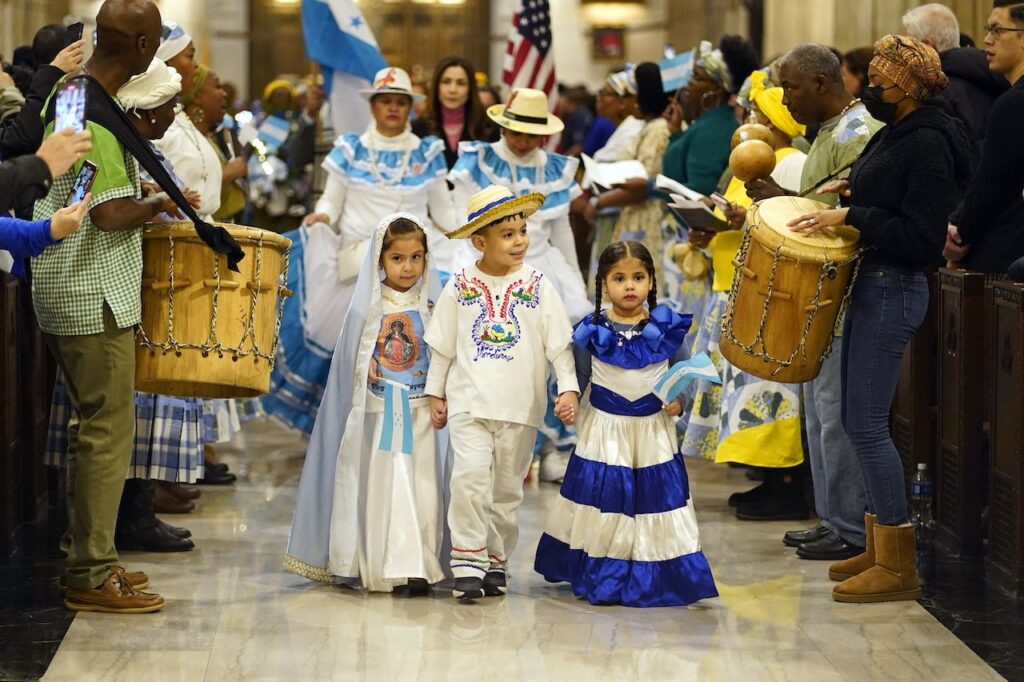Every year, between September 15 and October 15, the United States observes Hispanic Heritage Month. The observance began as Hispanic Heritage Week in 1968 and, in 1988, was extended by law into a full-month celebration.
During Hispanic Heritage Month, we all are invited to honor and highlight the many stories, experiences, and contributions of Hispanics living in the United States, which are integral to who we are as a nation.
For U.S. Catholics, Hispanic Heritage Month should be a major occasion to affirm and celebrate who we are and who we are becoming. Of the approximately 63.7 million Hispanic people living in this country, about 31 million self-identify as Catholic. What’s more, about 43% of all Catholics in the United States of America are Hispanic.
Educational institutions at all levels in our nation engage in different activities to highlight Hispanic cultural elements and learn more about the Hispanic population. Teachers do a superb job creating moments where this happens, in the classroom and through school wide activities. Many other organizations do likewise.
I must say, however, that I do not see the same level of enthusiasm observing Hispanic Heritage Month in our Catholic parishes. It is rather strange since nearly half of all U.S. Catholics are Hispanic and fully 25% of parishes have developed some form of Hispanic ministry.
We don’t seem to have developed a strong culture of parochial observance of Hispanic Heritage Month. But that can change. A communal culture is built through small practices and the commitment to perform these regularly. Here are five practical ideas.
–Start with the parish bulletin and social media. Write a weekly article about Hispanic Catholics; highlight the Hispanic community of your parish or your town; explain a Hispanic popular Catholicism practice (e.g., posadas, altarcitos, quinceañeras); share the story of a U.S. Hispanic; Latin American or Caribbean saint; invite young Hispanics to write something about growing up in a Hispanic Catholic household.
–Set up a book display in the back of your church, or at the parish hall or perhaps in the parish office (think of an often-frequented space in your community) with works that describe Hispanic Catholicism and books written by Hispanic Catholics: poetry, novels, theological works, spirituality guides. The literature on Hispanic Catholicism is abundant!
–Organize at least one evening parish lecture or presentation during this special month with a speaker who shares something interesting about Hispanic Catholics. Promote the event among all parishioners of your community. If your community is multilingual, host events in different languages. Ah, make sure you offer some Hispanic food!
–Those who preach can take advantage of this time of the year to intentionally say something about the Hispanic Catholic experience from the pulpit as they break open the Word. Catechists and teachers in the parish should be encouraged to share about Hispanic Catholicism in their lessons. Give them some resources.
–This is the perfect time of the year to invite your parish community into fiesta! It does not take much to bring the community together to enjoy each other’s presence. It could be a picnic, a large meal or maybe a bazaar. Share Hispanic food and music. Start with a bilingual or multilingual Eucharistic celebration. Pray in Spanish, English, Portuguese, and Latin American indigenous languages.
These practices don’t take much effort and cost rather little. The effects upon the parish community can be invaluable as they help us to appreciate our Hispanic Catholic roots more. Such practices are instrumental in reminding us who we are and who we are becoming as U.S. Catholics. Happy Catholic celebration of Hispanic Heritage Month!
Hosffman Ospino is a professor of theology and religious education at Boston College.

